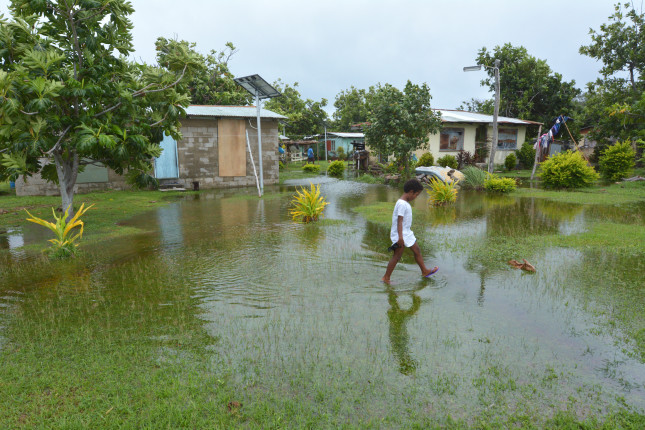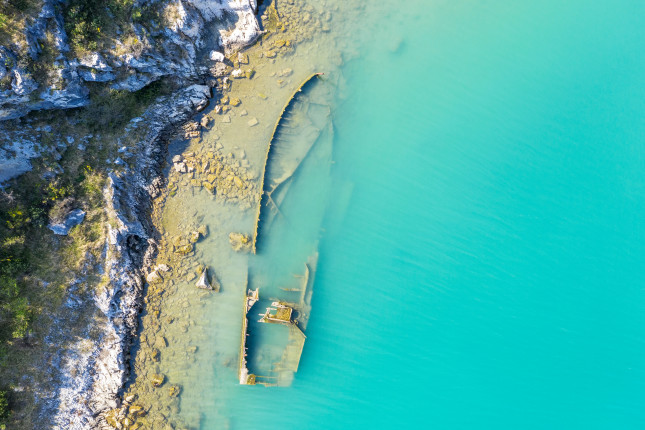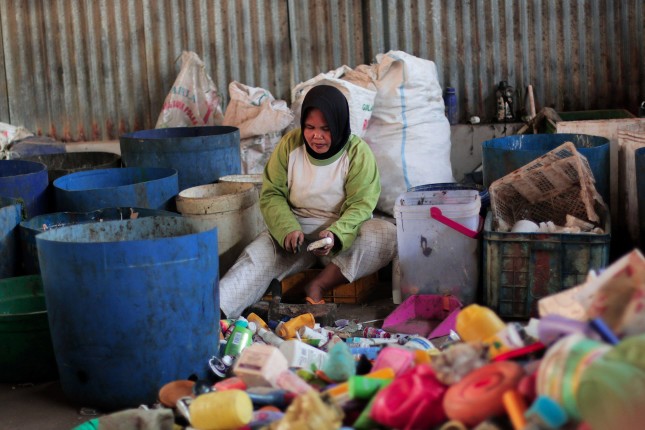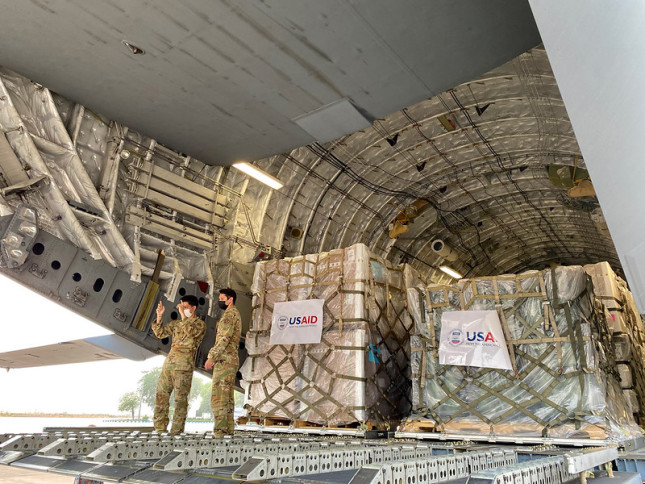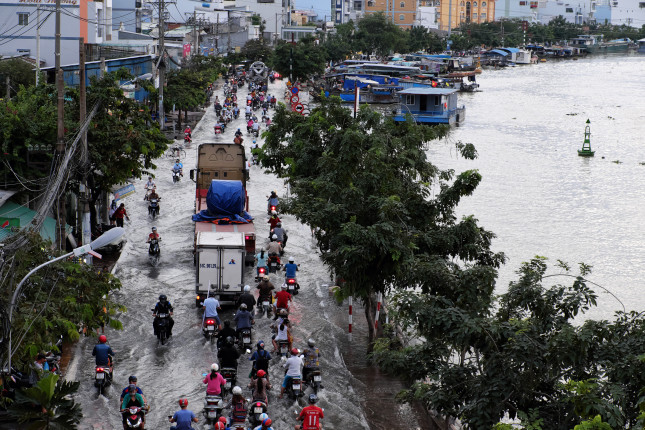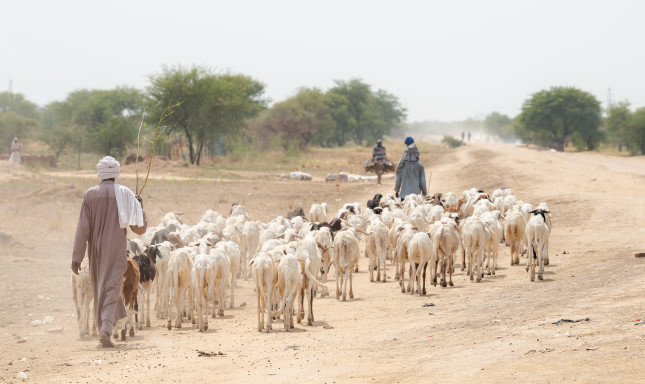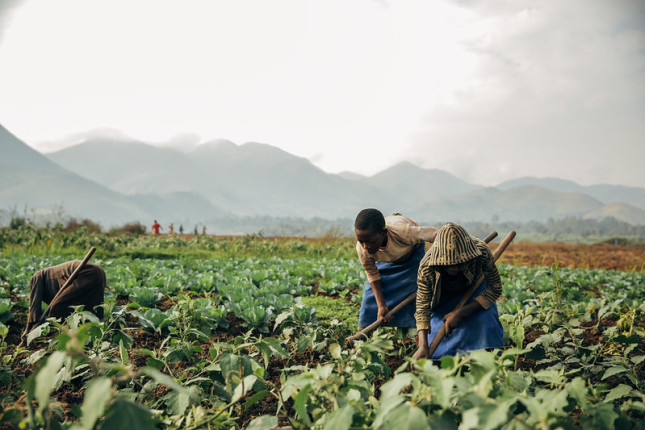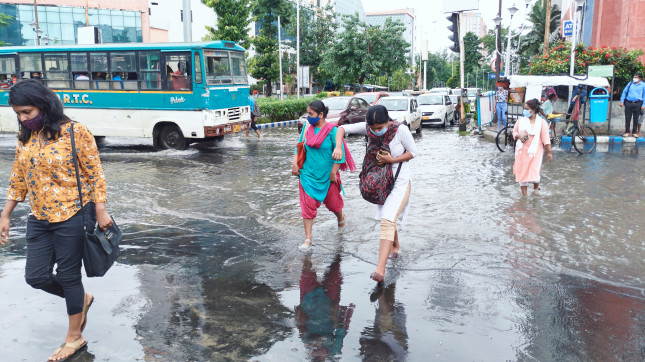-
Desperate for Hope? Linking Human Well-Being and Climate Solutions is a Way Forward
›If raging wildfires, extreme drought, and superstorms haven’t made it clear, the latest IPCC report tells us in plain language: the world is poised for worsening climate impacts over the next 30 years. The report’s release—during an unprecedented pandemic and natural disasters that magnify the connections between climate, health, livelihoods, and human well-being—is a grim reminder of the fragility of life on Earth. There is hope, however: the winding links between climate, health, and well-being also present tremendous opportunities. What if, collectively, thought leaders, negotiators, practitioners, and policymakers in the climate, health, business, and international development communities could do a better job of advancing solutions that address these crises simultaneously? When climate, poverty alleviation, and human well-being are addressed together, a vision of a better future emerges like a beacon in the night.
-
Climate Crisis Exacerbates Military Legacy Contamination
›
This summer, climate-induced heat waves ignited landmines and unexploded ordnance buried in the soils around the Middle East, killing people and causing wildfires. Warmer waters are speeding up erosion of sunken battleships laden with degrading munitions. A melting ice sheet on Greenland has exposed thousands of barrels of toxic waste at abandoned U.S. military bases.
-
The Apps Helping Indonesia’s Waste Collectors
› -
International Foresight Takes Flight: OECD-DAC Led Foresight Community Grows and Spotlights New Cooperation Scenarios
›Guest Contributor // September 14, 2021 // By Steven Gale, Ana Fernandes, Krystel Montpetit & Nicolas Randin
The world needs strategic foresight now more than ever, and not just because of the COVID-19 global pandemic. Mounting climate crises across the globe underscore the need—blistering “heat domes” and extensive wildfires across the parched United States West, catastrophic floods of unprecedented scale in Germany and Europe, and more rain in just twenty-four hours in Zhengzhou China than typically falls over the course of an entire year. Scientists warn that for the first time, deforestation now threatens the capacity of the Amazon forest to absorb carbon dioxide. Foresight is no longer a luxury and climate change is no longer a distant threat.
-
The Challenges of Climate Change in an Urbanizing World
›
The recently released draft report of the Intergovernmental Panel on Climate Change (IPCC) lays out in no uncertain terms that we face an insurmountable challenge in addressing climate change and its impacts. One shocking takeaway is that sea-level rise is now thought to be irreversible. Indeed, rising temperatures and changing weather patterns threaten to send some cities under water, while causing others to dry up. These opposing challenges increasingly threaten the lives and livelihoods of people in many countries as rapid urbanization is making cities even more densely populated. Floods and droughts threatening the world’s cities will force governments of the world to reevaluate the quality of their infrastructure, their disaster management strategies, and of course, their environmental footprints.
-
Conflict in the Sahel Likely to Worsen as Climate Change Impacts Increase
›
Currently there isn’t a lot of good news coming out of the Sahel, the area in Africa that borders the Saharan desert to the north, the Sudanian Savannah to the south, and stretches across the continent. Multiple raging insurgencies, especially in the western part of the region, fuel a news cycle of offensives and counter offensives, responses and massacres.
According to the damning new ‘code red for humanity’ report from the Intergovernmental Panel on Climate Change (IPCC), the news from the region isn’t likely to get better any time soon.
-
Integrating Conflict Prevention and Climate Change in U.S. Foreign Policy and Development Assistance
›
Climate change is no longer an abstract issue we may face in the future. Devastating forest fires, the hottest June on record in the United States, lethal flooding in Europe and Asia, and extreme droughts in Africa reveal that the climate is already changing with extreme consequences. Even more concerning than these events alone is the reality that the drivers of climate change, violent conflict, and fragile states compound each other. Climate change exacerbates unstable social, economic, and political conditions, while conflict and fragility can hinder effective climate change response and adaptation. The U.S. can address the compound risks created by both of these issues only through integration of conflict prevention and climate change in its foreign policy and development assistance.
-
COVID-19 and the Fight Against Climate Change: What Have We Learned?
›
As the world continues to battle the COVID crisis, we must not lose sight of the greatest long-term threat faced by mankind: climate change.
COVID-19 and its even more contagious variants have wrought misery upon our world, inflicting massive loss of life and sickness, widespread disruption of health services, and economic ruin with ensuing social upheaval. There is no silver lining.
We can, however, attempt to extract useful lessons from the strategies and tactics──both successful and unsuccessful──used to battle the contagion to better array our forces against that other pending global catastrophe: climate change.
Showing posts from category climate change.


